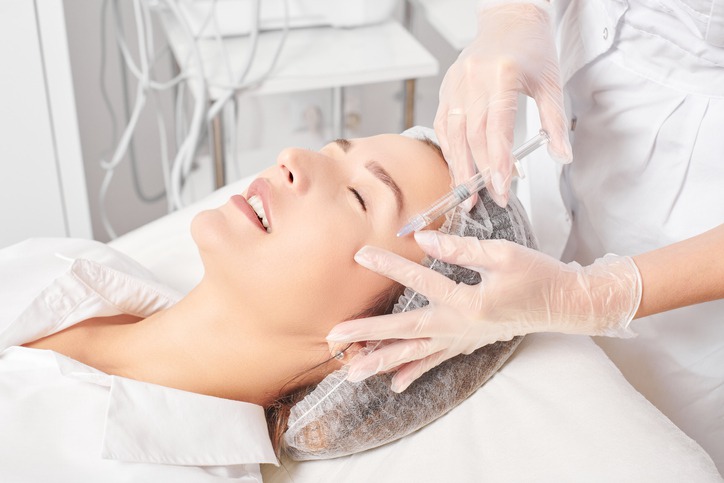
If you’re a medical professional looking to expand your skills and services, finding the right Botox training program is crucial. Botox treatments have become a staple in cosmetic procedures, and the demand for skilled practitioners is on the rise. Before you set out on this new educational venture, it’s important to ensure the training program you choose is not only reputable but also accredited. Here’s what you need to know to make an informed choice.
The Importance of Accreditation
Accreditation matters a lot when it comes to Botox training. It’s a stamp of approval that signifies the program meets specific educational standards and is recognized by professional bodies. Accredited programs usually update their curriculum regularly to keep up with the latest industry standards and regulations, ensuring you receive current and comprehensive training.
Ensuring Quality and Safety
Undergoing training through an accredited institution not only provides you with a quality education but also prepares you to perform treatments that prioritize patient safety and achieve optimal results.
Eligibility for Professional Credentials
Completing an accredited program often makes you eligible for certain certifications or memberships in professional organizations, enhancing your credibility in the field.
Finding Accredited Botox Training Programs
Research Online for Accredited Programs
Now that you know why accreditation is essential, where do you find these programs? A good starting point is online research. Most accredited institutions have an online presence where you can find detailed information about the courses they offer.
-
Look for official websites of recognized cosmetic and medical aesthetic training institutions.
-
Check the accreditation status of the program and the accrediting organization.
-
Read reviews and testimonials from former students to gauge the program’s credibility.
For those of you specifically looking in the Los Angeles area, there are many opportunities for Los Angeles Botox training. The city boasts some of the country’s best beauty schools and medical institutes offering top-notch programs. From weekend workshops to longer, more intensive courses, there’s something to fit your schedule and educational needs.
Tap Into Professional Networks
Your professional networks can also be a gold mine when searching for accredited Botox training programs. Medical conferences, workshops, and even casual conversations with colleagues can lead to valuable recommendations.
Consult Medical Boards and Organizations
Relevant medical boards and organizations maintain lists of accredited training programs. These can be accessible through their websites or by contacting them directly.
Using Local Resources to Your Advantage
Your backyard can be a great resource for finding accredited Botox training. Many local universities and colleges with medical or aesthetic programs may offer the training you seek. Additionally, local professional organizations related to dermatology and plastic surgery can point you in the right direction.
Many established local hospitals and clinics often host accredited Botox training and may offer programs that are normally reserved for their staff to external practitioners.
Choosing the Right Program Structure
One size does not fit all when it comes to Botox training. Consider your work schedule and learning style when choosing the program that’s right for you.
-
Full-Time vs. Part-Time: Decide whether you can commit to full-time training or if you need the flexibility of a part-time schedule.
-
Online vs. In-Person: Some prefer the convenience of online courses, while others benefit more from the hands-on experience of in-person training.
-
Short Courses vs. Comprehensive Programs: While some professionals may only need a refresher course, others might be looking for comprehensive training covering all aspects of Botox treatments.
When it comes down to getting serious about this career path, broadening your understanding of Botox training will enable you to make informed decisions. It’s not just about learning to administer injections but also about understanding the hows and whys behind the procedures to become a safe and effective practitioner.
Considering the Content and Curriculum
No matter where you find your training program, you’ll want to ensure it offers a curriculum that thoroughly covers the key aspects of Botox treatments. It’s not just about learning to inject; you need to understand the intricacies of facial anatomy, patient assessment, and aftercare. The best programs will balance theoretical knowledge with plenty of practical, hands-on experience.
Finding a Mentor in the Field
A mentor who’s an experienced Botox injector can provide insights no textbook ever could. Seek out programs that offer mentorship opportunities or can connect you with industry veterans.
Assessing Location and Logistics
Though online courses offer great flexibility, those preferring in-person training need to consider the location. You’ll need to factor in the commute, the schedule, and whether you’d need to travel out of town for seminars or additional training sessions.
If you’re in or near the Philadelphia area, you’re in luck because programs are offering Botox training Philadelphia. With a focus on a blend of theoretical and practical skills, these courses in Philly can set you up for success in the booming aesthetics market.
Estimating Costs and Financing
Investing in your education is important, but so is understanding the financial commitment involved with Botox training programs. Look for transparent pricing and check if they offer financing options or payment plans.
Final Thoughts
Finding an accredited Botox training program involves research and self-reflection. You need to consider accreditation, program structure, curriculum content, location, and cost. By keeping these factors in mind, you’ll be well on your way to embarking on a successful Botox practice and serving your clients with the highest level of expertise.
Remember that the journey doesn’t end with accreditation. Maintaining your skills with ongoing education is just as vital. The field of aesthetic medicine is always evolving, so stay curious, stay informed, and stay at the top of your game. Your clients will thank you, and your practice will thrive.






